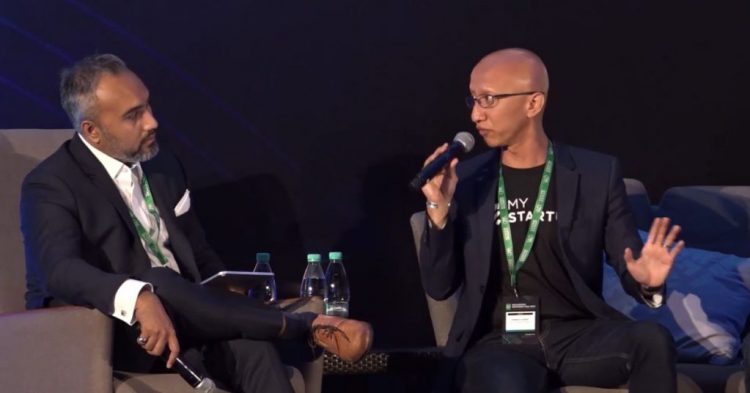Not many would disagree that Silicon Valley is the number one startup ecosystem in the world. But just in case anyone’s doubting it, this is a fact proven by Startup Genome’s The Global Startup Ecosystem Report 2021.
Scoring a perfect 10 in all categories (namely performance, funding, connectedness, market reach, knowledge, and talent), Silicon Valley is known as a global centre of innovation and home to countless unicorns.
But this article isn’t about the prowess of the San Francisco tech hub, but rather, Malaysia’s own startup ecosystem.
In the same Startup Genome report that verified Silicon Valley’s reign, Malaysia’s Kuala Lumpur is nowhere on the top 30 global startup ecosystem ranking. However, KL was recognised as 21-30 on the top 100 emerging ecosystems list, with a value of US$16.1 billion.
That’s certainly something to be proud of, but is Malaysia’s ecosystem actually moving fast enough, especially when compared to our regional counterparts?
Four industry experts came to speak on the subject during a panel at Wild Digital Southeast Asia 2022 titled “Embracing Adaptation: Building a brighter startup ecosystem”.
With Aaron Sarma, general partner at ScaleUp Malaysia, as a moderator, the experts sharing their insights were Karl Loo, founder and COO of ServisHero, Effon Khoo, founder and CEO of Kakitangan.com, and Ahmad Kashfi, senior vice president, ecosystem development at Cradle Fund.
Identifying Malaysia’s challenges
According to Karl of ServisHero, Malaysia is actually quite an appealing space for international investors. On top of the opportunities for digitisation, Karl also said that Malaysians have a good reputation for being able to build organisations and scale them regionally.
Effon from Kakitangan.com also mentioned that startups are stronger nowadays, especially having survived through the pandemic.
But if that is the case, why is Malaysia’s ecosystem still behind?
Ahmad Kashfi (as Kash, as the moderator and panelists call him) has an idea.
Cradle Fund is Malaysia’s early stage start-up influencer, incorporated under the Ministry of Finance Malaysia in 2003 / Image Credit: Wild Digital
In the Malaysia Startup Ecosystem Roadmap 2021-2030, penned by a team of experts in the startup scene, five main challenges in the ecosystem were identified. This includes:
- Lack of private sector-driven funding;
- Lack of local and foreign talent with the required technical and digital skills;
- Lack of a clear path from ideation to commercialisation for startups;
- Lack of robust policies and regulations to provide a sustainable startup environment;
- Lack of validation and support; lack of access to cross-border market penetration.
These are all issues that MYStartup, an accelerator programme hosted by MOSTI and Cradle Fund, aims to tackle.
According to Kash, it’s important for Malaysia to create an “economic flywheel”, which will generate enough centrifugal force to gain momentum and propel Malaysia’s ecosystem.
Getting private and public institutional support
If you’re involved in our local startup scene, you’ll know that there is quite a lot of governmental involvement and support.
Just to list some names, there’s MOSTI (Ministry of Science, Technology and Innovation), MDEC (Malaysia Digital Economy Corporation), and MRANTI (Malaysian Research Accelerator for Technology & Innovation).
Interestingly, this level of government intervention seems to be quite unique to Malaysia, at least according to panellists.
While all the governmental support is great, this leads to the question asked by the moderator—are Malaysian startups overly dependent on government intervention to get things done? Do too many of these programmes end up making local founders complacent?
“Let’s take a step back and clarify our role in the entire scheme of things,” Kash said. “We are just facilitators and we should just remain as facilitators, not as mentors or business experts.”
He continued, “What we should do is to focus on what we do best, which is make sure we come up with the best policies for startups to thrive.”
As such, Kash noted the importance of corporate (private sector) participation—something that he sees is becoming a trend. Corporates are more active when it comes to investing in startups, whether it be monetarily or otherwise.
This benefits both the startup and the corporate, as with fresh funds, the startup is given more opportunity for growth, which, in turn, can be channeled back to the corporate’s own growth.
Kash concluded, “Because [corporates] know if they don’t innovate, they’ll be disrupted.”
 The title of the panel was “Embracing Adaptation: Building A Brighter Startup Ecosystem”
The title of the panel was “Embracing Adaptation: Building A Brighter Startup Ecosystem”
This is why the MYStartup initiative also includes names like Petronas and Microsoft, among others to come. According to Kash, a common thing the team hears from these corporate partners is that they want to work with startups, but they just don’t know how.
The reason that private sector participation is important in the first place is that private sectors often facilitate investments.
To add, these big corporations can act as a safe harbour and path to exit for startups.
According to Karl, if more exit scenarios exist in Malaysia thanks to the involvement of private organisations, the region will attract more investments while motivating founders.
And of course, this would be critical for the retention of talent.
Growing a greater talent pool
Recently, the issue of “talent” has been raised frequently in Malaysia. Or rather, it’s the possible loss of said talent that has been the topic of conversation.
To Karl, it is a real threat that Malaysia is losing its talents to other markets.
“Now more than ever, tech workers have a lot more options,” he said. “They can be digital nomads and remote workers in Bali, they could work in any of the Southeast Asian countries because tech talent is high in demand.”
 ServisHero is a platform where users can look for household and enterprise services
ServisHero is a platform where users can look for household and enterprise services
From his experience, a lot of staff members even ask for relocation to another office—typically their Singaporean one, which has been doing a good job attracting global talent and global networks.
“Regional talent wars are very real right now,” Karl said. “A lot of our neighbouring countries are getting very proactive about this, so it’s time for Malaysia to get very aggressive.”
The solution for Effon is to build a bigger talent pool with improved educational standards.
On top of this, the Kakitangan.com CEO also thinks that it’s time to move beyond just retention of talent. He suggested that the process to get working visas should be more streamlined, as he believes that the solution lies in attaining foreign talents rather than retaining local ones.
If this can be achieved, it would certainly allow Malaysian startups access a bigger and better talent pool.
-//-
There’s no doubt that Malaysia’s startup ecosystem has a lot of potential. The whole Wild Digital SEA conference is a testament to that.
However, potential is not enough. There must be actions taken to fulfil those potentials, which will require the help from both governmental support as well as participation from the private sector.
Stakeholders must also fix incentives to attract global talent and the education system in Malaysia should be fostering a better, more optimised talent pool.
As Aaron put it: “It takes a village to raise a child, it takes an ecosystem to raise a startup, and it takes all of us to work together to make it better.”
- Learn more about Wild Digital here.
- Read more articles about Wild Digital SEA here.
Source by vulcanpost.com





























